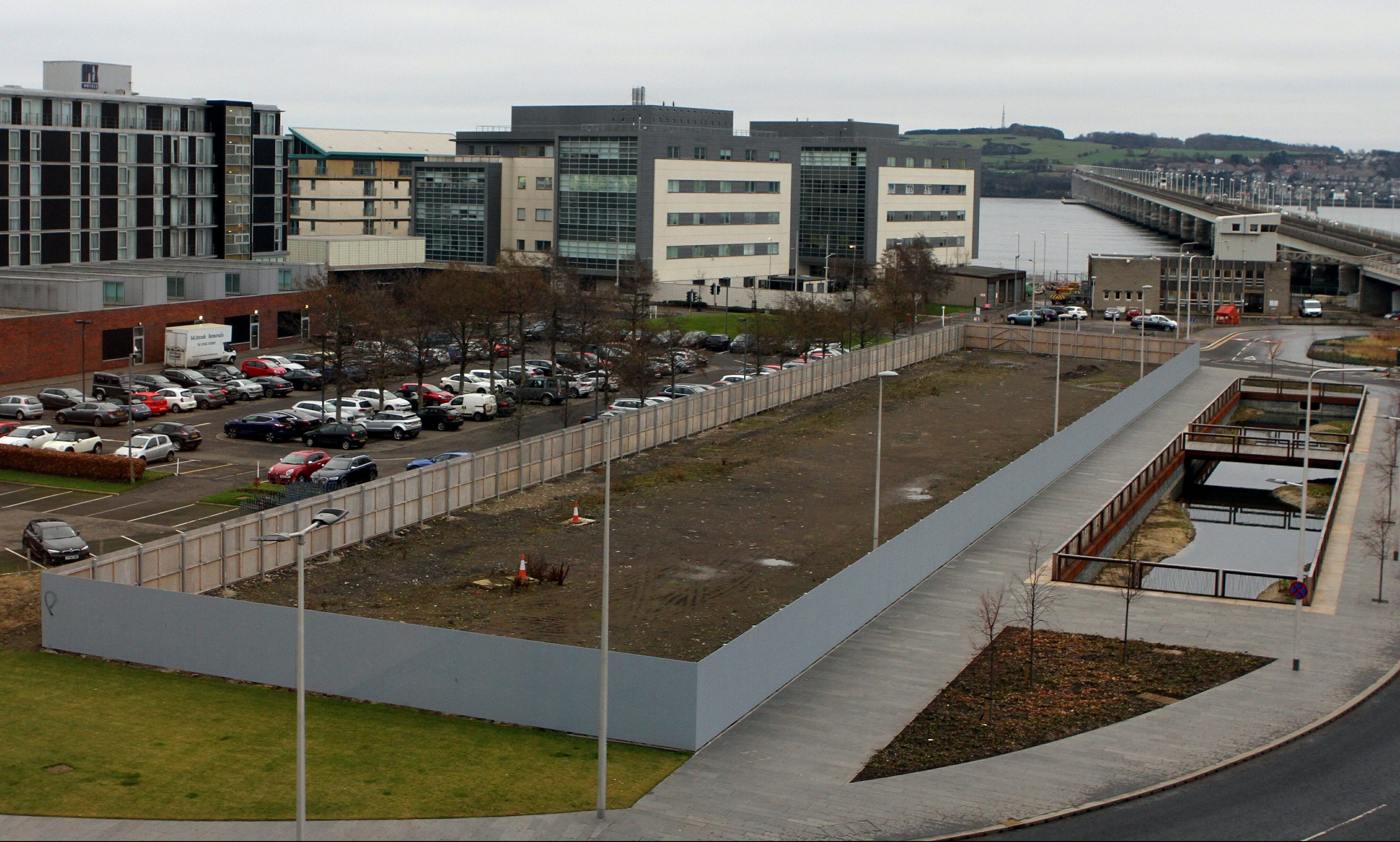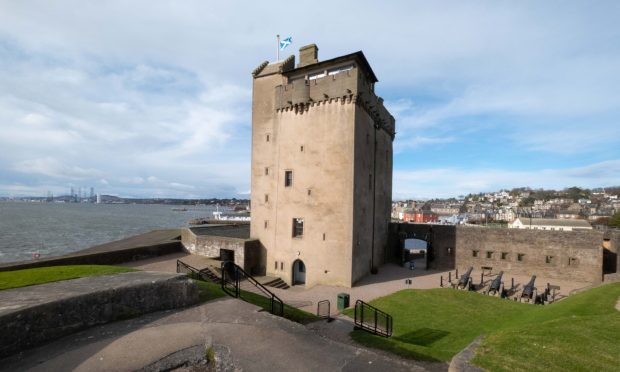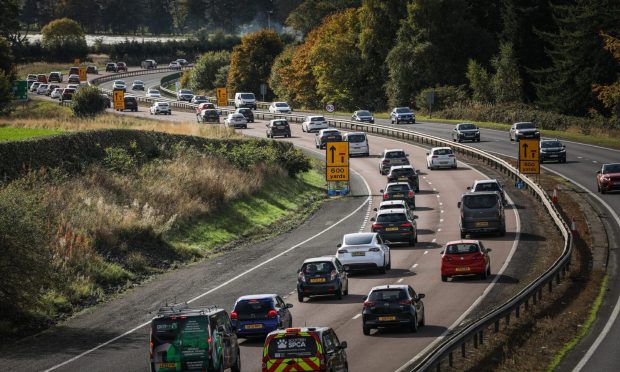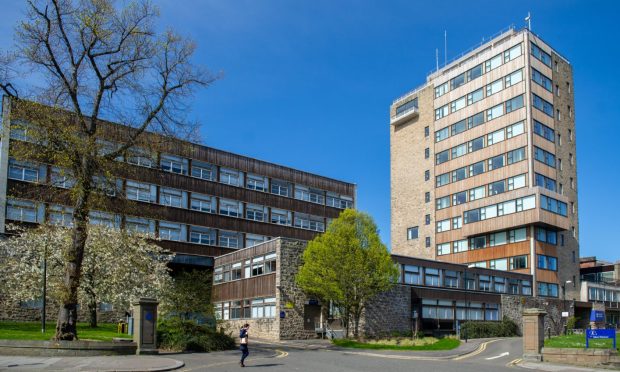Plans are being drawn up to build a major new international games design studio in the heart of Dundee’s £1 billion waterfront development.
It is hoped the multi-million-pound ‘studiotel’ project – which would combine state-of-the-art digital facilities with on-site accommodation to provide games designers with a fully immersive live-in experience – will enhance Dundee’s reputation as an international games design hub and attract creative talent from around the UK and overseas to live and work in the city.
The Courier understands the new facility is being slated for development site 17 at the central waterfront, a narrow site between the new SUDS ponds on South Commercial Street and the car park of the Apex City Quay Hotel.
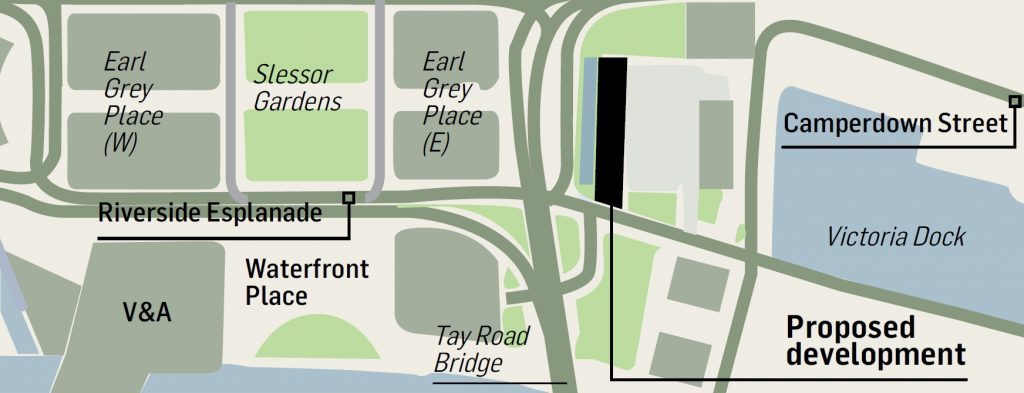
The concept for the building is being developed by the UK Games Talent and Finance CIC, the Dundee-based group which manages the government-backed UK Games Fund which provides early stage funding to games developers.
“The creation of this studiotel in Dundee would see the Tay Cities region pioneer a world-first facility,” UK Games Talent and Finance CIC chief executive Paul Durrant said.
“As a UK and international-facing organisation, we have been actively seeking a home for this concept, with a number of games clusters at home and abroad representing potential.
“However, because of our links with the city and our roots, it would be fantastic to see this happen in Dundee.
“We want to grow the volume of original digital intellectual property created and marketed from within the Tay Cities region and attract money and talent to support our growing wealth of creativity.”
The bulk of the funding for the £15.5 million build would come from a private sector developer, with a further £2m contribution sought from the Tay Cities Deal process.
The project has passed the outline stage of approvals under the Tay Cities Deal umbrella, and a strategic case has now been put forward for consideration.
In addition to the contribution towards the build, the studiotel will seek a further £13.5m of programme funding through the Tay Cities mechanism.
The £400m City Deal is itself a work in progress with a final bid document – with themes of innovation, investment and internationalisation at its core – expected to be lodged with the UK Government for funding approval in the Spring.
Designers based at the studiotel will sign up to innovative blockchain contracts that will more fairly recognise their creative input into a games development project from a financial perspective.
Backers believe the facility has the potential to significantly increase the digital interactive developer base in the city, contribute around £70m to the local economy over ten years and become a major attraction in its own right with at least 200,000 visitors to public showcase events over the same time period.
“The level of growth cited in our proposal will not happen organically. It can only happen if we attract new talent to the region,” Mr Durrant continued.
“As part of this, it is essential that we provide a basis for talented incomers to connect to all the great things the region has to offer and make it easy for them to stay on and become part of the thriving community.
“With virtual reality and other immersive technologies reshaping the future of the digital interactive content development industry, we in the Tay Cities region must act now so we can benefit from being a leading destination for digital content development.
“Working with the Digital Catapult we’ve also pioneered a new business process for automated digital shares in games projects and this will be at the forefront of our trust centre.”
